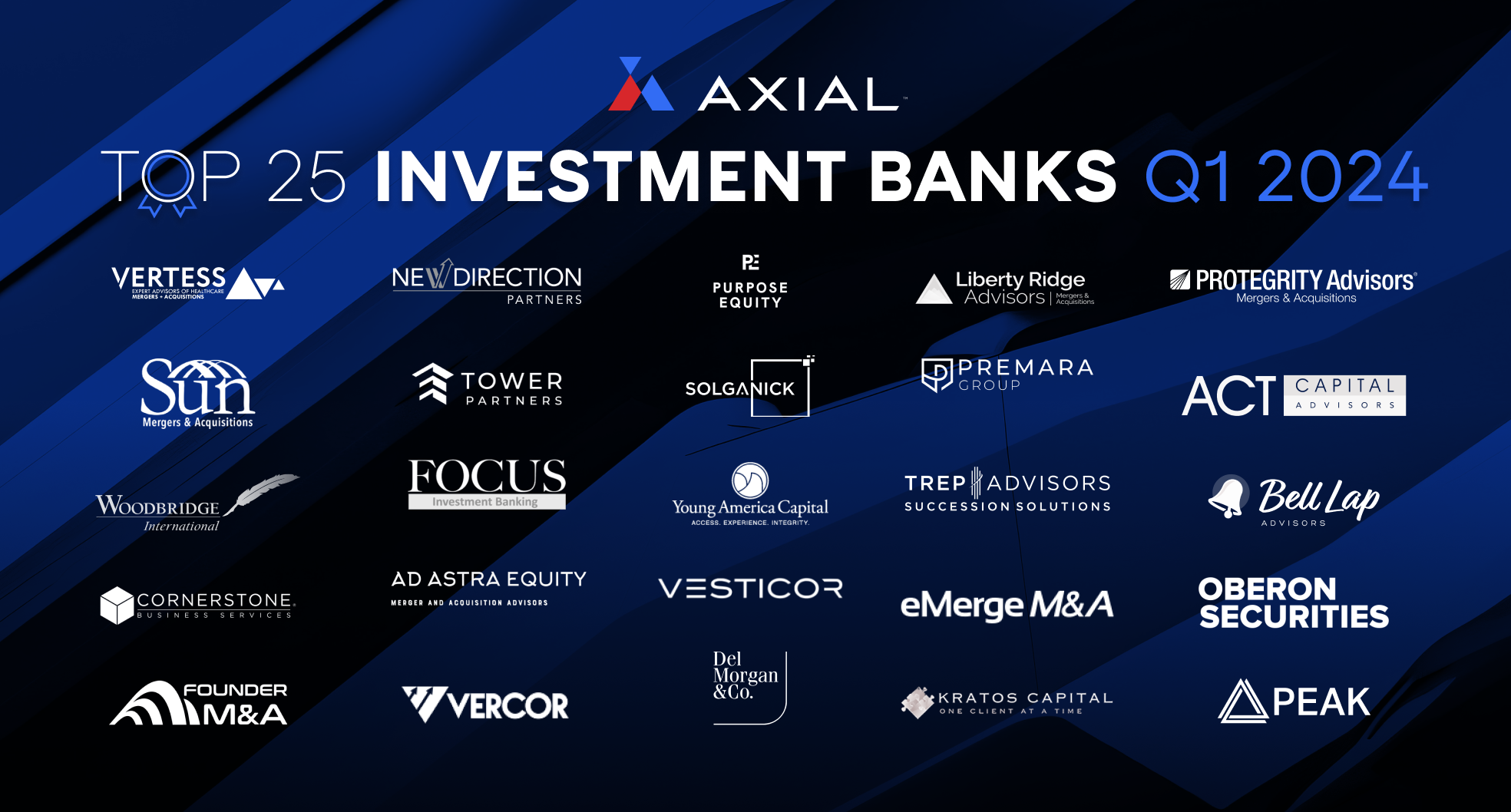
Top 25 Lower Middle Market Investment Banks | Q1 2024
Axial is excited to release our Q1 2024 Lower Middle Market Investment Banking League Tables. To assemble this list, we…
In the latest in our series on the future of the industry, we’re looking at one of the trends we expect to see continue as we approach the coming decade: the rise of nontraditional investors in private equity.
Private equity has historically been about exclusivity — it takes money to make money. Investors in private equity funds, or limited partners, are generally required to invest millions of dollars in a single fund, committing their money for several years — making it virtually inaccessible for all but wealthy institutions like endowments, foundations and pension funds. But as regulatory changes take hold, the limited partner gains more power, pension funds phase out and the individual investor begins to look like an attractive new market, many wonder if the alternative asset will soon be a mainstay of the average investment portfolio and, if so, is it a good thing?
Regulation sparks the change
The first chip in the foundation of exclusive private equity investing was in 2012, when the JOBS Act was passed by Congress and signed into law by President Barack Obama. The Act proposed changing the 80 year old rules surrounding equity funding, generally making SEC filing requirements less strict to allow startups more financial freedom.
The new laws made it so that private companies can be more freely funded by “accredited investors.” Accredited investors, however, is still a title most Americans can’t claim. The term applies to individuals registered with the SEC as having an income exceeding $200k or a net worth over $1 million. So while the ability to tap into the promise of some of the country’s fastest growing companies has been extended to a much larger group, there’s hardly an argument that it’s accessible to a majority of the population.
The policy change is already starting to trigger a wave of change across other parts of the industry. While private banks and brokerage firms have traditionally held the keys to entering into PE funds, new online platforms have emerged to allow any accredited investor to “shop” the alternative asset, allowing them to invest as little as $2,500 to get in on a deal. Many believe it’s only a matter of time until the SEC outlines equity crowdfunding for everyone.
These developments mark a shift not only in the source of equity but also the investment style. Rather than the traditional method of investing in a fund, which the firm then uses at its discretion, these new investors to allocate their money more discreetly, investing on a deal by deal basis.
The megafunds take a hint
As it’s become harder and harder to fundraise in recent years and fees and the blind pool model remain in the spotlight, some of the most high profile private equity firms have begun catering to the individual investor. Megafunds like Carlyle, Blackstone and KKR all have funds specifically marketed towards individual investors. Feeder funds and “pooling” vehicles have also become popular. From 2008 to 2014, private equity industry saw a 3% increase in the amount of capital raised from individual investors.
One of the latest signals of recognition of industry-wide change is the news of mergers between more traditional PE shops and alternative investment managers. Just last month, Ares Management bought Kayne Anderson Capital Advisors in a move that would make the combination the world’s 4th largest fund and allow Ares to harness the latter firm’s expertise in reaching individual investors and their advisors.
Some funds have made shifts to be ready to enter the mass market. It may only be a matter of time until private equity funds are options on investors’ 401(k)s, which will require that all products are much more transparent – offering daily pricing and liquidity.
What does it all mean?
It’s been over two years since the JOBS Act was signed into effect, and the most essential question has yet to be answered: do we actually want anyone to be able to invest equity in private companies?
While some believe equity crowdfunding will democratize investment and open up new opportunity for people previously restricted by lack of wealth, there are others who question the benefits it’ll bring both investors and businesses. There’s no simple answer to this question, which is why many expect the SEC won’t release guidelines for the public until late October.
